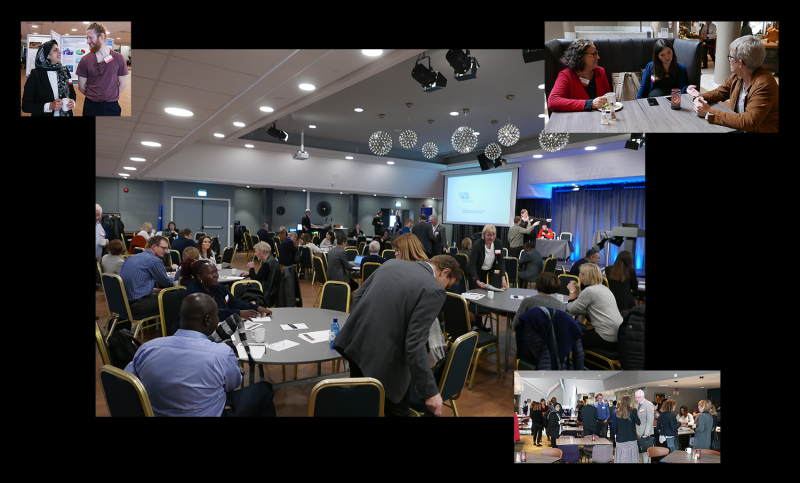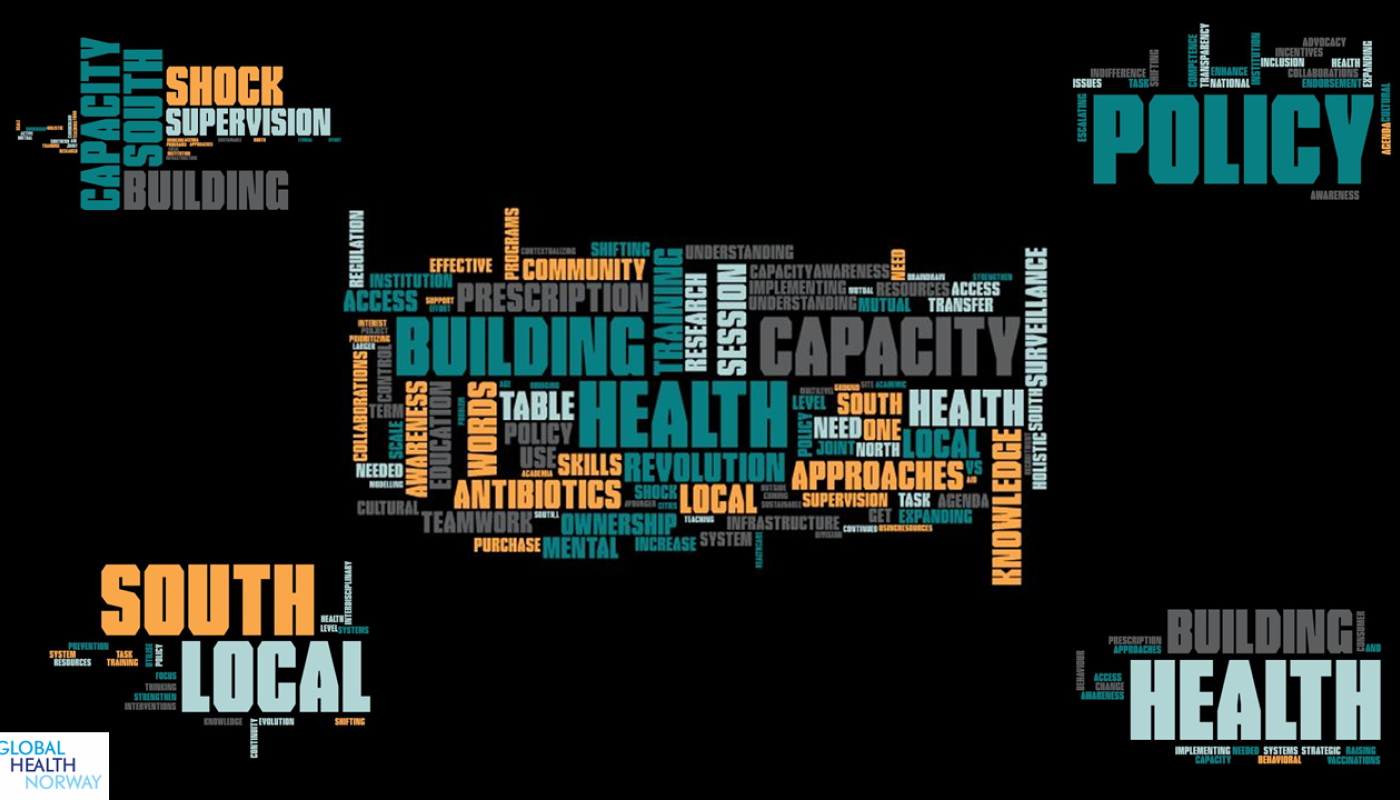The annual conference in global health was held in Bergen April 2-3 with representatives from universities, research institutions, hospitals and health institutions across Norway.
Participants gathered in Bergen to present new results, discuss new proposals, and share ideas and experiences about their global health research and competence-strengthening activity.
The conference was hosted by Global Health Norway, the Norwegian Forum for Global Health and the University of Bergen’s Centre for International Health.
Mark your calendars: next year’s conference will be held in Oslo, the first week of May. It will be hosted by the Norwegian Institute of Public Health and the University of Oslo.
Global Health research in Norway – the last 15 years
The conference was the second conference sponsored by the Global Health Norway. These annual global health conferences previously were sponsored and arranged by the Research Council of Norway, through the GLOBVAC Programme.
The first GLOBVAC programme began in 2007. The second programme began in 2012 and finishes in 2020. According to the programme website, “The primary objective of the GLOBVAC programme is to support high-quality research with potential for high impact that can contribute to sustainable improvements in health and health equity for people in low- and lower-middle income countries (LMIC).”
The programme was part of an initiative undertaken by the Norwegian government in 2006 to address the fact that “Less than 10% of the amount invested in health research globally is devoted to research on health problems that account for 90% of the global disease burden. In Norway this fraction is estimated to be only 5%.” The initiative aimed to “bring Norway to the average international level in global health research[ … and should …] prioritize support to the best research groups in order to build sustainable research institutions with the potential of reaching the international forefront.”
Virtually all the research and competence-strengthening activity presented during conference is a result of this initiative. See the programme.
What is Global Health? Who is involved? What are the goals?
Nina Langeland, a Professor at UiB, and leader of Global Health Norway, opened the conference by welcoming participants and asking them to consider these questions (in the sub-title). New to the conference this year, was the amount of participation by people active in global health outside Norway’s 4 main universities.
Global Health Norway was established in 2017 (learn more), and extends the global health collaboration that had been established between the main Norwegian universities, to include hospitals, regional health trusts, and large research institutions around Norway. Its 3 main areas of focus are: research, education and development cooperation. While most global health research activity is concentrated at the universities, there is significant competence building and strengthening activity on-going at the hospitals and regional health trusts.
Global Health Conference 2019
The conference was organised into 3 topical sessions with opportunities for round-table discussions among participants after each session. The topic was: what type of change in capacity building is needed? What is your revolution?
Although the question for the discussions was the same – the response, summarised in key words, varied after each session, as you can see in the smaller images. The larger image in the middle is a composite of all the key words.
The conference also included key note presentations and a set of parallel sessions. Please see the programme for more details.
Interaction – bridge-building – collaboration
Although the round-table discussions were designed to promote interactions between conference participants, Global Health conferences in Norway have come to be characterised by lively, extensive personal interactions! After over 15 years, the collaborative bonds between institutions and individual researchers are strong – and all are open to developing new collaborative partnerships, particularly in light of the increasing emphasis on multi-disciplinarity.
The next generation of global health researchers
An important characteristic of Global Health Conferences in Norway is the associated PhD conference. This 2-day activity is now the responsibility of the Norwegian Research School of Global Health. This year about 60 PhDs attended!
A number of PhDs were involved giving presentations in the conference parallel sessions. Many (26) submitted poster abstracts. An evaluation committee involving Anne Hatløy (leader), Gunilla Kulla and Øystein Even-Olsen picked 2 posters for prizes based on their high quality, readability and accessibility.
First prize (5000 NOK) went to Fatema Khatun et.al.for:
Evaluation of palm-based biometrics among women in rural Bangladesh
Abstract: "The study investigated the fact that unique identifiers are not universal in low- and middle-income countries. Biometrics have the potential to replace the existing name-based patchwork used for identification in these settings. This study examines a comparison of the searching accuracy of a palm-based biometric, run on mobile devices, with a name-based DHIS2 database for identification of individuals in a low- and middle-income country."
The second prize (3000 NOK) went to Camilla Grøver Aukrust et.al. for:
Cross-cutting Clinical Contexts of Care to improve Competencies; A qualitative study on the experiences of Malawian nurses involved in the Blantyre-Oslo Neurosurgical exchange Program
Abstract: "It was about work aimed at building a sustainable neurosurgical service at Queen Elizabeth Central Hospital (QECH) in Malawi. Through a six months job-training at Oslo University Hospital, the hope is to give Malawian nurses specialist training and to improve their competencies. This study explores the experiences of the Malawian nurses who have been job-training in Norway by investigating main learning outcome as well as perceived applicability upon return to home community."
Final word
Bente E. Moen and Nina Langeland closed the conference noting that the event has really served to bind together the various global health environments around Norway. Moen invited 2 PhD students to give the final word: (1) think sustainability; (2) remember there are not only country differences, but also regional differences within countries.


